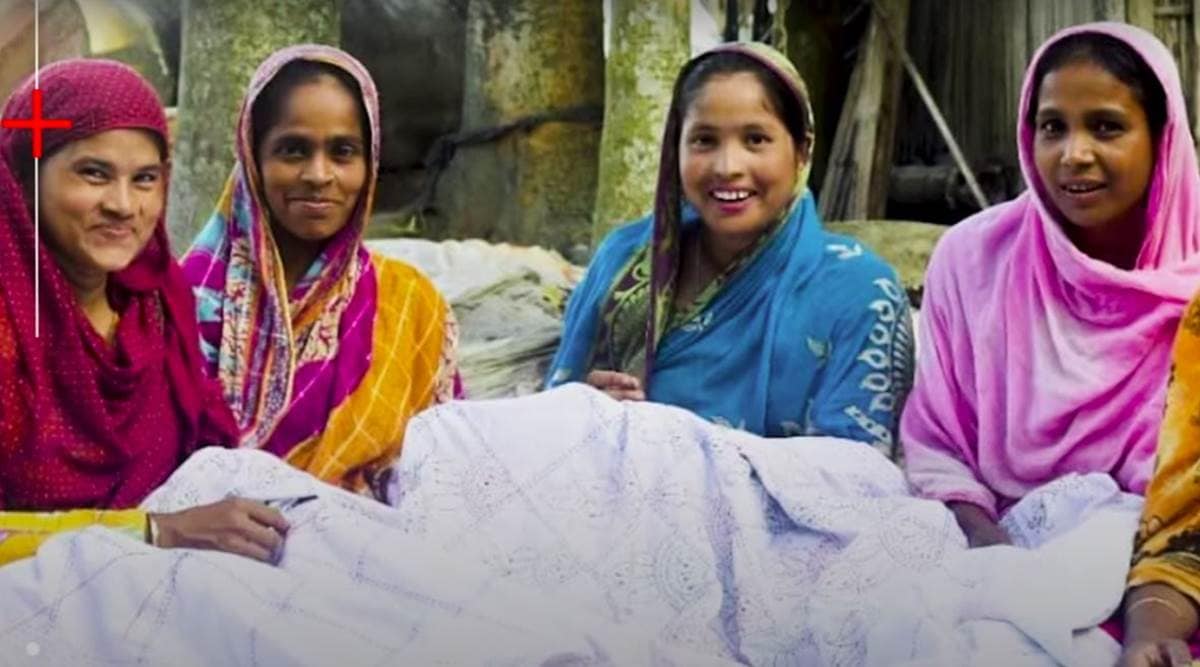Locked out of their livelihoods, these women stitched a new path to success
It is routine for these islands to sink every monsoon, only to emerge in another place when the waters abate. Yet, these women have taken troubles in their stride.
It is routine for these islands to sink every monsoon, only to emerge in another place when the waters abate. Yet, these women have taken troubles in their stride.

Along the banks of the Beki, a tributary of the Brahmaputra, lies Rupakuchi. On this island, locally known as a char, a group of women are stitching a story of their own.
In 2020, when the lockdown hit everything, straining their already meagre resources, these women turned to a centuries-old Bengali craft: stitching khetas or patchwork quilts, with recycled cloth.
Now, part of Amrapari, an all-women collective, these women and their designs are marketed across the country.
Khetas are something the women make for their personal use, stuffing old sarees or even mosquito nets into them. For Amrapari, they source new bedsheets, and use the Kantha stitch to make patterns.
A majority of Bengali-origin Muslims live in chars, spread along the Brahmaputra in Assam. It is routine for these islands to sink every monsoon, only to emerge in another place when the waters abate. Yet, these women have taken troubles in their stride.